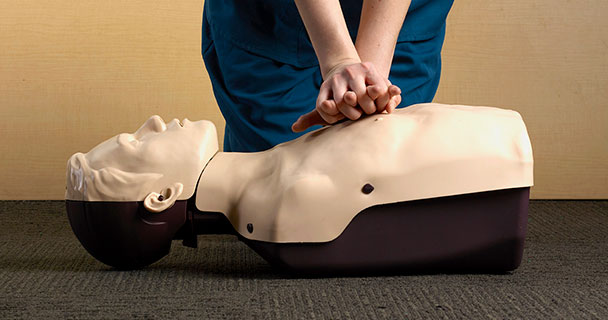







The difference between transactional and transformative learning in healthcare

Much of the past year has seen a large majority of healthcare overwhelmed by the covid 19 pandemic. Looking back at the experience of healthcare training during this time, it's easy to see that healthcare learning has taken on a new importance as care professionals are being trained for new environments, especially those they've had to assume in the midst of COVID-19-related emergency situations. Some healthcare educations even share that for the first time in their careers they've experienced physicians who are actually asking for additional training!
The need in healthcare to adapt and be agile
More than ever before it's become important for healthcare staff to adapt to changing conditions and become agile in their ability to do so quickly. An important way to support the demands of this moment in healthcare is to transform learning so that it is more efficient and promotes a higher level of engagement among employees. Here are some of the challenges currently being faced in the healthcare training environment. T 0
- Resource Shortages -- Many organizations don't have adequate resources or the technology to create truly engaging training.
- Urgency -- In many cases, training needs to be developed quickly. Speed is of the essence when we need to get people trained for new environments.
- Remote Training Options -- It's also very valuable if we can deliver training in a remote environment, but that also presents hurdles.
- Specialized Training Needs -- In many cases, specialized training is needed, and it needs to also to be developedat a rapid pace.
- Ways to Measure -- When it comes to employees we need to be able to measure and identify their training needs. What's very essential is to use data to find training solutions that will do the most good.
Make healthcare learning transformative
One thing many healthcare organizations should pursue is the adoption of transformative learning. This kind of learning targets unconscious incompetence, which has been defined as a state where "you don't know you don't know!" Training that's transformative really optimizes the learning experience and allows healthcare providers to eliminate the damage that can be caused by unconscious incompetence. Another way to think about transformative learning is as adaptive learning. In essence, this training is personalized to what someone needs to know, considering experience, tenure, and the learning on the job gained over the course of a career. Adaptive learning aims to provide efficient, effective, and customized learning on individualized paths that go much further in their efforts to engage the learner. These efforts are also data driven, which allows healthcare organizations and learners themselves to adjust the pace and path of learning to deliver a customized learning experience. From the point of view of a learner, The value of transformative learning is that it gets to be about you and meeting your needs, not those of the organization.
Transactional vs. transformative learning
Let's compare some of the key characteristics of transactional and transformative learning. Transactional learning is one size fits all. One of the goals of people taking this kind of learning is that the goal is to record tests and individual scores and the time spent. In many cases this is learning that's been taken multiple times without change, and learners can click through the content without getting anything new out of it. It may be focused on knowledge transfer and completing learning tasks without any focus on ultimate outcomes. On the other hand, transformative learning is personalized. It involves analyzing learner behaviors, as well as the outcomes to which they contribute. In many cases, rather than a lengthy involved training process, transformative learning involves micro learning of short duration that is far more valuable at the moment a trainee goes through them. It is also experiential and has an impact on the business and outcomes of healthcare. One great example of transformative learning is a simulation lab that recreates a healthcare procedure being learned rather than just reading or listening about it. Transformative learning is focused more on the results of care and has far greater potential for engaging staff in the learning involved.
This blog post is based on HealthStream's recorded webinar, Move from Transactional to Transformative Learning. Use the link above to download this 45-minute webinar with healthcare learning and development leaders as they discuss how transformative learning strategies impact employee engagement, leadership development, and retention.
Learning & performance exclusively for the healthcare workforce
There's a good reason why HealthStream's workforce education solutions are already trusted by more than 70 percent of healthcare organizations in the U.S. HealthStream's comprehensive suite of learning and competency management tools empowers your people to deliver the best care more easily and effectively than ever before. Powered by the industry's top content providers, HealthStream's Learning & Performance solutions connect you to healthcare's largest learning community with a learning management system customized by you to meet your organization's unique needs.
